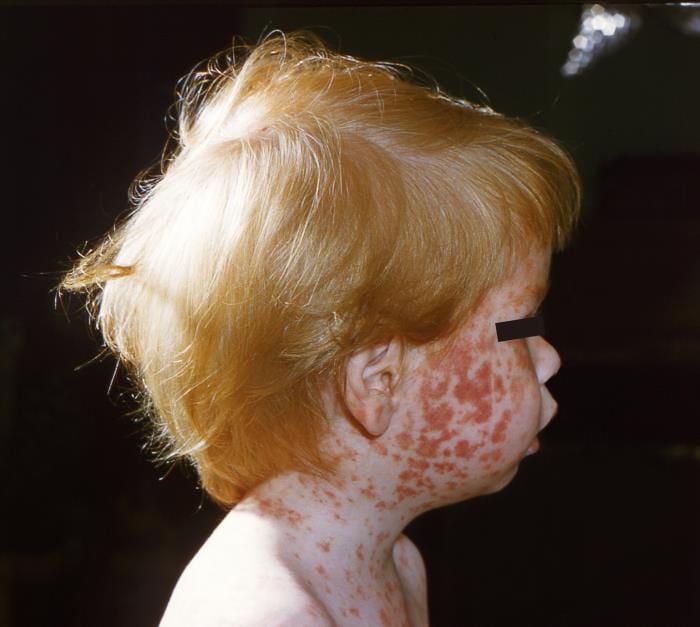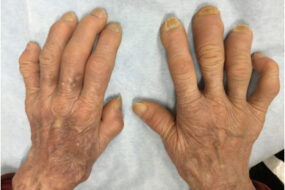- Home
- INTERNAL MEDICINE
- Rubella (German Measles)

Rubella is a viral illness that can have devastating effects on the fetus but is a self-limiting infection in children. It is caused by rubella virus (of the family Matonaviridae). Spreads via respiratory droplets. Infectivity- 10 days before till two weeks after rash onset. Incubation- 15 to 20 days.
Clinical presentation
- Fever
- Maculopapular rash that disappears at the end of 3rd day spreads from the face.
- Lymphadenopathy
Complications
- Thrombocytopenia
- Hepatitis
- Arthritis- female adults
- Others- encephalitis, hemorrhage
- A transplacental infection leads to the persistence of the virus and severe congenital disease. The infant has an increased risk of diseases such as diabetes mellitus later in life.
Diagnosis
1. Serology
- Rubella igm or igg seroconversion.
- In pregnant women, the absence of the igg confirms the potential for congenital infection.
Prevention
- Vaccination- the MMR (Measles Mumps Rubella) vaccine for all children
- Antenatal rubella screening
- Pre-pregnant MMR
- Isolation of those infected
Management
Supportive care is the mainstay. No specific antiviral
- Antipyretics
- Symptomatic control of the rash and joint problems
- Fluids
Differential diagnosis
- Measles
- Scarlet fever
- Parvovirus B19
- Toxoplasmosis












